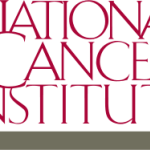- 업종: Government; Health care
- Number of terms: 6957
- Number of blossaries: 0
- Company Profile:
The National Cancer Institute (NCI) is part of the National Institutes of Health (NIH), which is one of 11 agencies that compose the Department of Health and Human Services (HHS). The NCI, established under the National Cancer Institute Act of 1937, is the Federal Government's principal agency for ...
An orally bioavailable hydroxymate inhibitor of histone deacetylase (HDAC) with potential anti-inflammatory, anti-angiogenic, and antineoplastic activities. Gavinostat inhibits class I and class II HDACs, resulting in an accumulation of highly acetylated histones, followed by the induction of chromatin remodeling and an altered pattern of gene expression. At low, nonapoptotic concentrations, this agent inhibits the production of pro-inflammatory cytokines such as tumor necrosis factor- (TNF-), interleukin-1 (IL-1), IL-6 and interferon-gamma. HDAC inhibitor ITF2357 has also been shown to activate the intrinsic apoptotic pathway, inducing apoptosis in hepatoma cells and leukemic cells. This agent may also exhibit anti-angiogenic activity, inhibiting the production of angiogenic factors such as IL-6 and vascular endothelial cell growth factor (VEGF) by bone marrow stromal cells.
Industry:Pharmaceutical
An orally bioavailable indole-3-carbinol (I3C) analogue inhibitor of the serine/threonine protein kinase Akt (protein kinase B) with potential antineoplastic and antiangiogenic activities. Akt inhibitor SR13668 binds to and inhibits the activity of Akt, which may result in inhibition of the PI3K/Akt signaling pathway and tumor cell proliferation, and the induction of tumor cell apoptosis. Activation of the PI3K/Akt signaling pathway is frequently associated with tumorigenesis and dysregulated PI3K/Akt signaling may contribute to tumor resistance to a variety of antineoplastic agents.
Industry:Pharmaceutical
An orally bioavailable indolocarbazole derivative with antineoplastic properties. Lestaurtinib inhibits autophosphorylation of FMS-like tyrosine kinase 3 (FLT3), resulting in inhibition of FLT3 activity and induction of apoptosis in tumor cells that overexpress FLT3.
Industry:Pharmaceutical
An orally bioavailable inhibitor of B-raf (BRAF) protein with potential antineoplastic activity. BRAF inhibitor GSK2118436 selectively binds to and inhibits the activity of B-raf, which may inhibit the proliferation of tumor cells which contain a mutated BRAF gene. B-raf belongs to the the raf/mil family of serine/threonine protein kinases and plays a role in regulating the MAP kinase/ERKs signaling pathway, which may be constitutively activated due to BRAF gene mutations.
Industry:Pharmaceutical
An orally bioavailable inhibitor of CXC Chemokine Receptor 4 (CXCR4) with potential antineoplastic activity. CXCR4 antagonist BKT140 selectively binds to the chemokine receptor CXCR4, preventing the binding of stromal derived factor-1 (SDF-1 or CXCL12) to the CXCR4 receptor and subsequent receptor activation, which may result in decreased tumor cell proliferation and migration. In addition, inhibition of CXCR4 may induce mobilization of hematopoietic cells from the bone marrow into blood. The G protein-coupled receptor CXCR4 plays an important role in chemotaxis and angiogenesis and is upregulated in several tumor cell types; SDF-1/CXCR4 interaction induces retention of hematopoietic cells in the bone marrow.
Industry:Pharmaceutical
An orally bioavailable inhibitor of CXC chemokine receptor 4 (CXCR4) with receptor binding and hematopoietic stem cell-mobilization activities. CXCR4 inhibitor POL6326 binds to the chemokine receptor CXCR4, thereby preventing the binding of stromal derived factor-1 (SDF-1 or CXCL12) to the CXCR4 receptor and subsequent receptor activation. This may induce the mobilization of hematopoietic stem and progenitor cells from the bone marrow into blood. CXCR4, a chemokine receptor belonging to the G protein-coupled receptor (GPCR) gene family, plays an important role in chemotaxis and angiogenesis and is upregulated in several tumor cell types; CXCL12/CXCR4 interaction induces retention of hematopoietic cells in the bone marrow.
Industry:Pharmaceutical
An orally bioavailable inhibitor of CXC chemokine receptor 4 (CXCR4) with receptor binding and hematopoietic stem cell-mobilization activities. CXCR4 inhibitor TG-0054 binds to the chemokine receptor CXCR4, thereby preventing the binding of stromal derived factor-1 (SDF-1 or CXCL12) to the CXCR4 receptor and subsequent receptor activation; this may the mobilization of hematopoietic stem and progenitor cells from the bone marrow into blood. CXCR4, a chemokine receptor belonging to the G protein-coupled receptor (GPCR) gene family, plays an important role in chemotaxis and angiogenesis and is upregulated in several tumor cell types; CXCL12/CXCR4 interaction induces retention of hematopoietic cells in the bone marrow.
Industry:Pharmaceutical
An orally bioavailable inhibitor of CXCR4 with potential antineoplastic and antiviral activities. CXCR4 inhibitor MSX-122 binds to the chemokine receptor CXCR4, preventing the binding of stromal derived factor-1 (SDF-1) to the CXCR4 receptor and receptor activation, which may result in decreased tumor cell proliferation and migration. CXCR4, a chemokine receptor belonging to the GPCR (G protein-coupled receptor) gene family, plays an important role in chemotaxis and angiogenesis and is upregulated in several tumor cell types; it is also a co-receptor for HIV entry into T cells.
Industry:Pharmaceutical
An orally bioavailable inhibitor of cyclin-dependent kinases (CDKs) and thropomyosin receptor kinase A (TRKA), with potential antineoplastic activity. CDK2/TRKA inhibitor PHA-848125 AC potently inhibits cyclin-dependent kinase 2 (CDK2) and exhibits activity against other CDKs including CDK1 and CDK4, in addition to TRKA. Inhibition of these kinases may result in cell cycle arrest and apoptosis of tumor cells that express these kinases. CDKs are serine/threonine kinases involved in regulation of the cell cycle and may be overexpressed in some cancer cell types. The neurotrophin receptor TRKA is mutated in a variety of cancer cell types.
Industry:Pharmaceutical
An orally bioavailable inhibitor of histone deacetylases (HDACs) with potential antineoplastic activity. Resminostat binds to and inhibits HDACs leading to an accumulation of highly acetylated histones. This may result in an induction of chromatin remodeling, inhibition of the transcription of tumor suppressor genes, inhibition of tumor cell division and the induction of tumor cell apoptosis. HDACs, upregulated in many tumor types, are a class of enzymes that deacetylate chromatin histone proteins.
Industry:Pharmaceutical
